.Stat Data Lifecycle Manager
A componentised front-end for statistical databases with an SDMX 2.1 API for the management of the data and referential metadata lifecycle according to the GSBPM processes Design, Collect, Process and Disseminate. Multiple statistical databases, e.g. for specific GSBPM processes: collected data, to be processed data, and disseminated data, and the information flows between these databases, can be managed with an single easy-to-use and consistent graphical interface.
VISUALISE
Easily access, view, edit, or create new structural artefacts through a filterable list that presents the main properties of each artefact, with an intuitive editor. Stamp datasets as production-ready to make them publicly visible.
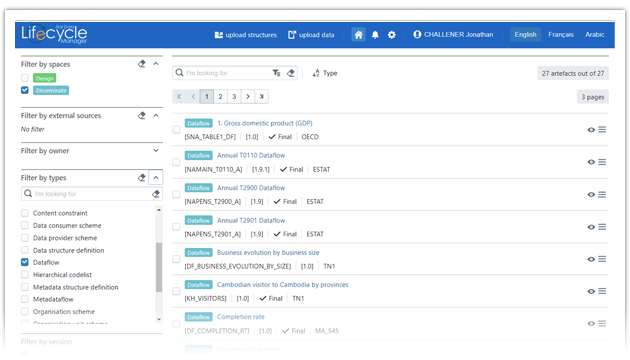
STRUCTURAL ARTEFACTS
Upload, transfer between databases and extract structural artefacts. External sources can be SDMX files from the file system or from SDMX APIs. Structural artefacts can be extracted as SDMX files.
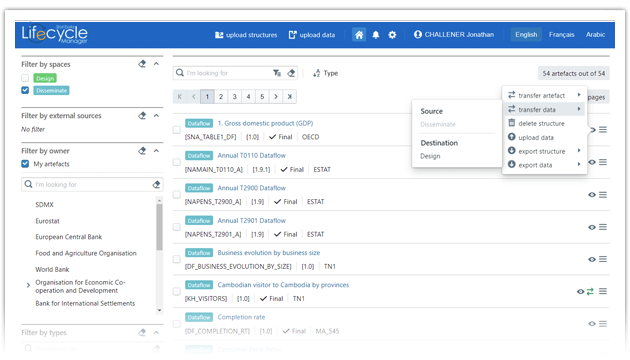
PREVIEW & REPORT
Preview data through multi-dimensional tables and charts (Timeline, Bar, Row, Scatter, Symbol, Maps), easily get all necessary additional information (attributes and referential metadata), embed tables and charts in own web pages for reporting and internal sharing. Compare and edit observations, attributes values and referential metadata values from within Excel. Define and run R-based data validations and calculationsusing VTL language.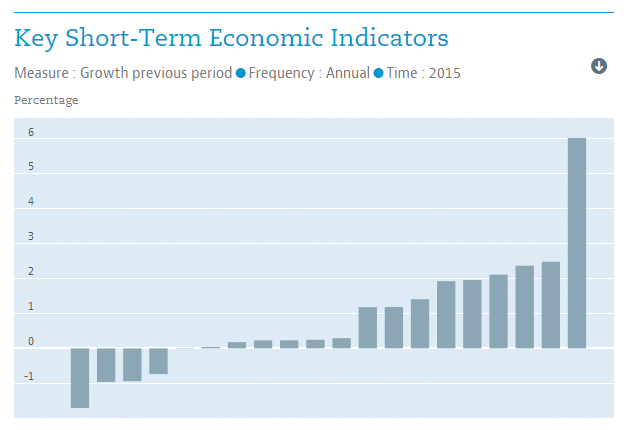
DATA & METADATA
Upload, transfer between databases and extract observations, attributes values and referential metadata values. External sources can be SDMX-ML or SDMX-CSV files from a file system or from SDMX APIs, or Excel files. Extraction formats are SDMX-ML. SDMX-CSV or Excel files.
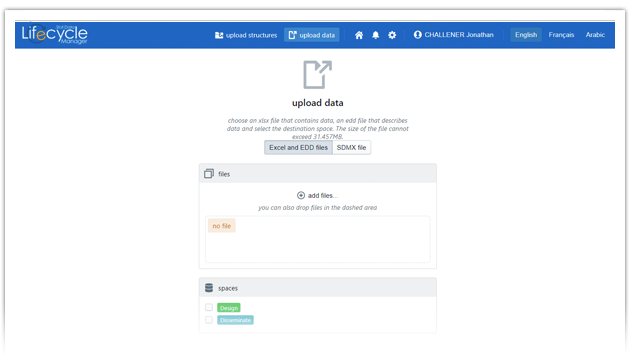
WORKFLOWS
Define and execute workflows by setting validation steps on any database change action.
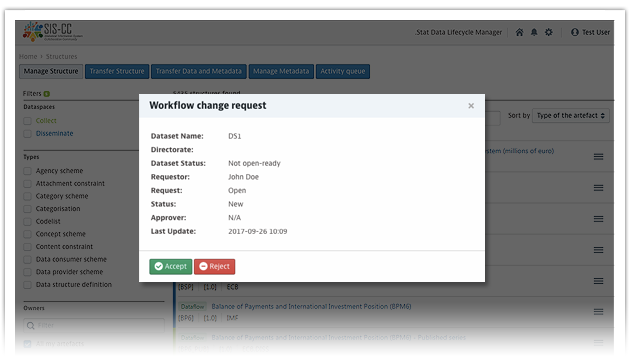
The .Stat Data Lifecycle Manager Manager can be configured to an individual context independent of the back-end services, usable as individual modules, able to manage multiple data spaces (collect, process, and disseminate) including multiple dissemination channels, and styled according to each organisation brand.